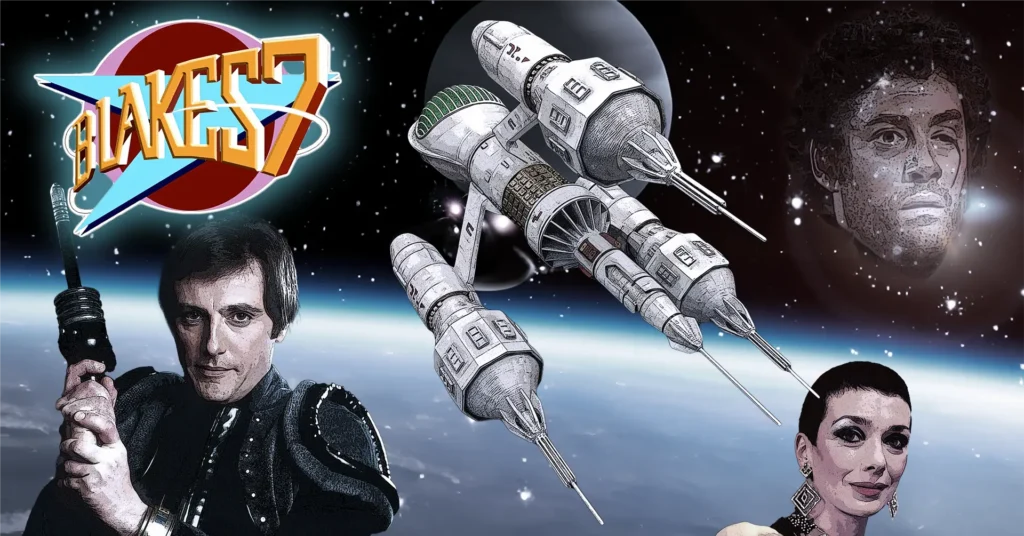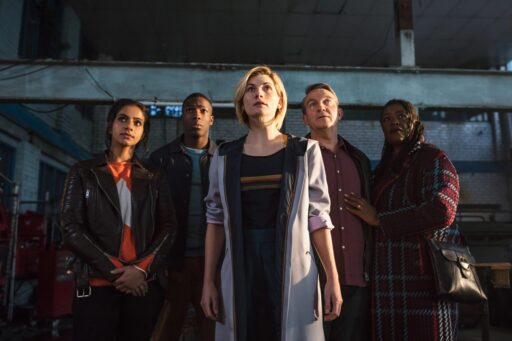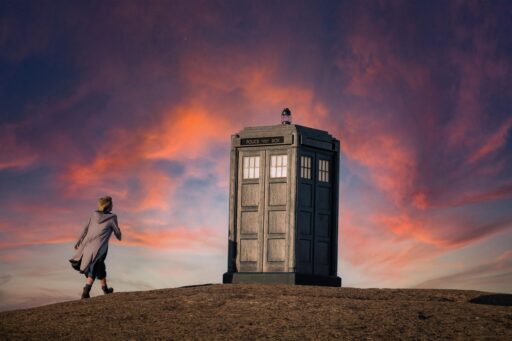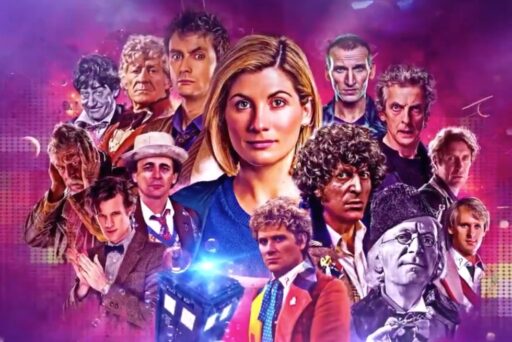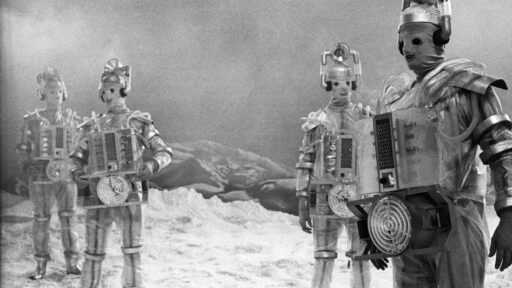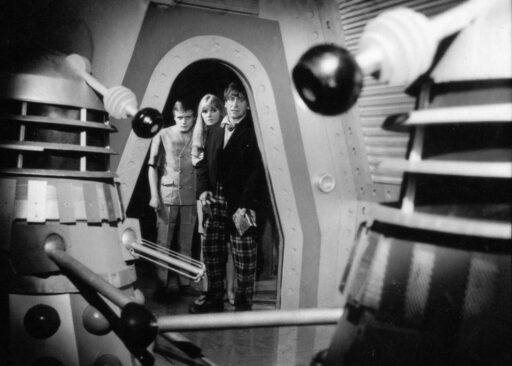I recently rewatched the entire of Blake’s 7, for probably the first time since the 80s. I’ve certainly watched individual episodes or even several episodes previously but not all 4 seasons and 52 episodes back to back, one a day like this. It was an interesting experience, partly just enjoying the nostalgia of it, but also watching it with modern (and considerably more aged) eyes.
While there are unquestionably elements that date the show, I was pleasantly surprised by Blake’s 7 relevance and ahead-of-its-time nature. Despite being a science fiction show that premiered over four decades ago, many of the themes and concepts explored in the series feel remarkably contemporary and you can see it trying to do really bold things for the time while being hampered by it’s format and the expectations of prime time tv in the 1980s.
The show delves into the power dynamics of rebellion. Led by the charismatic Roj Blake, the crew of the Liberator embark on a mission to overthrow the oppressive Terran Federation and, over the course of the seasons, the series then examines the moral ambiguity of rebellion, highlighting how power can corrupt not just those in authority but those rebelling against it too. It raises important questions about the nature of authority, resistance, and the ethical implications of seeking justice. This is, of course, all done in an episodic adventure of the week format.
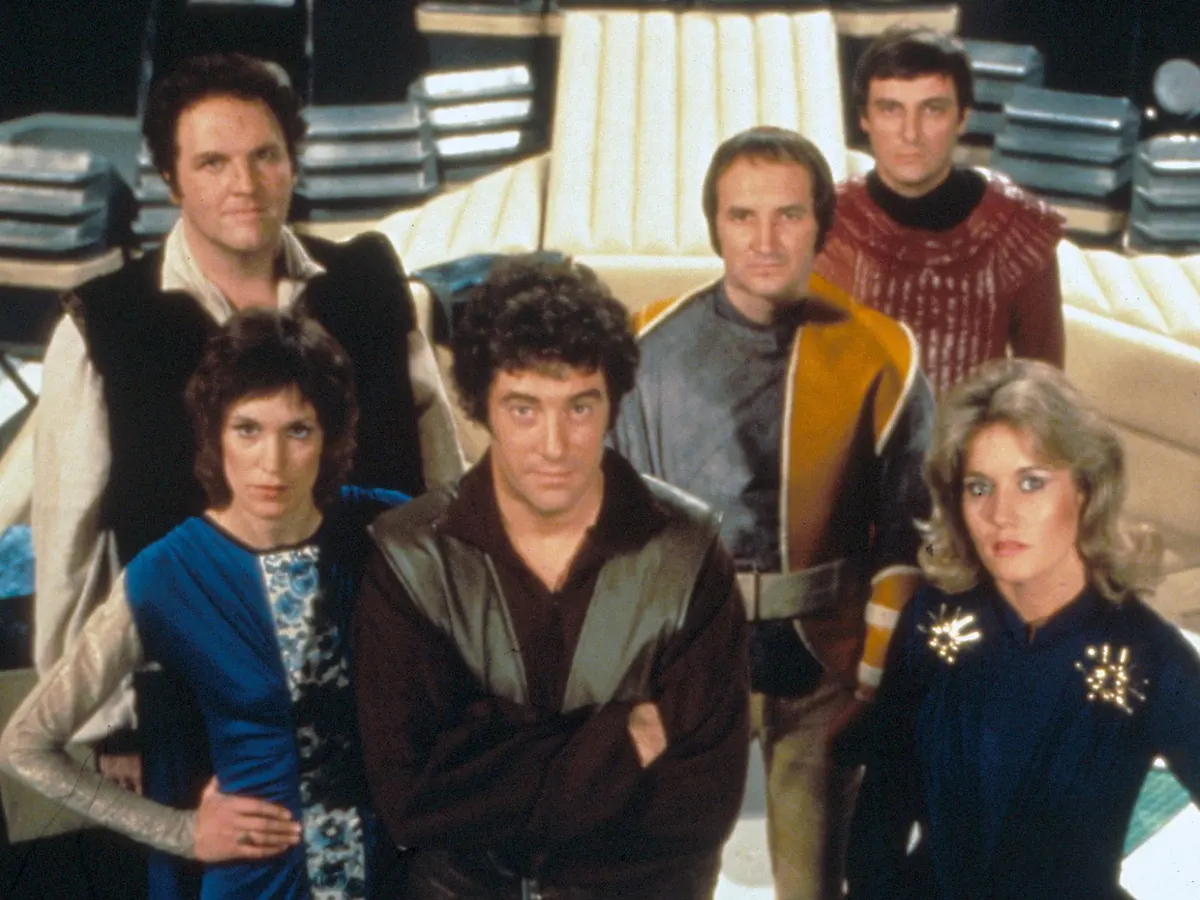
Blake’s 7 also, at least on the surface, offers a diverse for its time ensemble cast, with female characters who are, at least sometimes, shown as being as capable as their male counterparts. They are independent, resourceful and have roles that were traditionally reserved for men. This is, unfortunately often undercut by some glaring sexism in the individual plots and dialogue. Season D’s Power being a particularly egregious example.
The use of computers or artificial intelligences as we would think of them now is another interesting one. Both the Liberator’s Zen and then later Orac are clearly smarter and more knowledgeable than any of the humans, they also blatantly hold back information and in the case of Orac frequently operate under their own motives. While the impact of that is rarely explored beyond creating an obstacle in the episode, Avon’s attitude to computers (they are unthinking machines!) is an interesting contrast to what we are actually shown and mirrors the current debate over machine-learning.
If that’s not enough, themes of political manipulation, surveillance, and propaganda are woven throughout the plots of all four seasons of the show. This is a world where information can, and is, weaponized, and the truth manipulated in ways that can be easily see in our current political environment.
But Isn’t It Just a Cheap Sci Fi Show for Kiddies?
Much like Doctor Who at this time, Blake’s 7 is a sometimes campy show that drifts between science fiction and fantasy almost arbitrarily and was produced on a budget that might buy you a packet of crisps and a sandwich, if you are lucky. But unlike its sci-fi cousin (there’s a lot of overlap behind the scenes in terms of writing and casting) Blake’s 7 has much darker undertones, and sometimes overtones. It’s about as far from the Utopian ideals of Star Trek as you can get and has an edge that you really don’t expect from a supposedly family friendly sci-fi show that aired on the BBC.
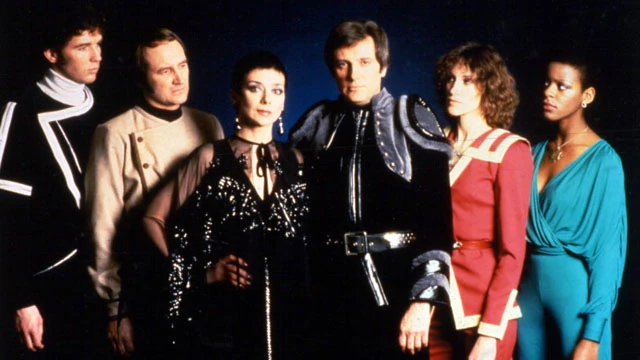
That darkness is evidenced from the opening episode in which Blake is not only brainwashed but set-up as a child molester by the regime that wants him discredited. They don’t say the words, but it’s really obvious that’s what is happening, and that approach continues throughout. We have Villa who is the resident cowardly thief frequently portrayed as a drunk and letch. But also we’re lead to think he uses drugs recreationally and that when he was on that pleasure city he was almost certainly enjoying paid for… umm… pleasures? Avon, played in wonderfully over the top and acerbic fashion, is not only willing on multiple occasions to let people die but was ready to throw Villa out the airlock to save himself. The already deeply corrupt Federation is casually overthrown by a Supreme Commander who is only interested in her own power. It also something of a running joke that virtually no guest cast survive an episode.
Beyond that though, Blake’s 7 had bigger ambitions that were clearly thwarted by when it was made and how it was made. There’s an entire galactic war that gets fought between seasons and many plot threads spin out of that which cannot be properly explored. Because, at the end of the day, the show is almost entirely episodic and it had no money to visualize some of these concepts.
The Four Year Plan
You can broadly map out an overall story for Blake’s 7 that looks as though it might have been planned, except it really wasn’t. Season A introduces all our characters and Blake’s mission over the course of the first few episodes while and is over all the lightest of the seasons despite that very first episode. It sets the stage for the adventures to come and flirts with a non-episodic construction but quickly reverts to more traditional adventure of the week.
Season B is where things start to change and the driving force of the show very much revolves around Blake’s changing demeanor and his increased militancy as counterpointed by Avon’s avowed preference for money and self-preservation. We are repeatedly told about the influence Blake is having on the Rebellion but rarely get to see evidence of that, largely no doubt due to budget. The conclusion to the season leads to believe that both Blake and Avon have reached some sort of deeper understanding, but you do have to read between the lines because little is spelled out.
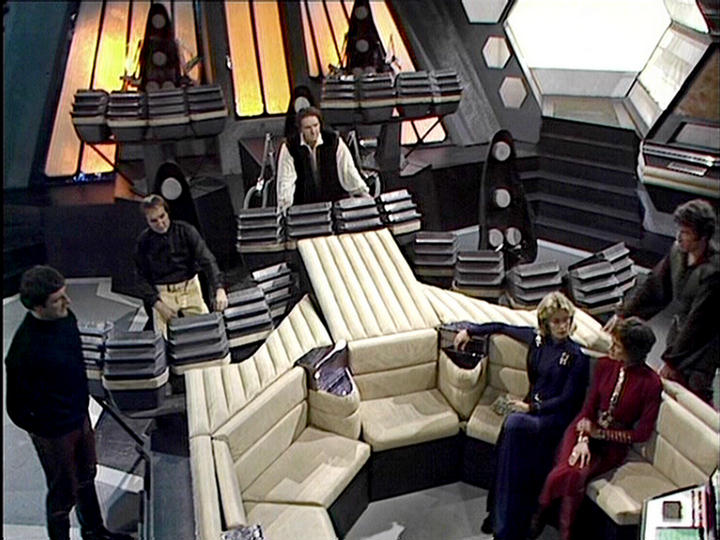
Season C reveals the aftermath of the galactic war, avoiding the costs of having to actually show it, and uses the web of alliances and power struggles to fuel the stories. The focus shifts to Avon, whose role becomes more prominent as he struggles to assert control over the squabbling crew. A power struggle that results in the destruction of the Liberator as he goes racing off in chase of rumors of Blake.
Finally, Season D shows Avon increasingly acting in the way that Blake might have done, trying to build up the resistance and being ruthless in the process. Listed like this it all seems like a logical and planned progression. It is worth noting that although this outline may give the impression of a meticulously planned story arc, the reality behind the scenes was far from straightforward. Blake’s departure, for instance, was ultimately the actor’s decision and not a deliberate part of the script editor’s blueprint. Similarly the destruction of the Liberator was because they thought they wer ending after Season C. Nevertheless, the evolution of the characters and the complex interplay of their choices and consequences make Blake’s 7 a captivating and thought-provoking sci-fi series.
Struggling With Its Limitations
All of this makes me wonder what might have happened if Blake’s 7 had been able to work to a 4 year plan in the way that Babylon 5 was able to a decade later. The restrictions of an episodic show made it very hard to really convey the sort of character development that was attempted. Instead of a smooth transition, the characters changed abruptly from episode to episode, and even major traumas like the death of someone they loved, or an entire race being wiped out, were barely mentioned afterward.
The ambition was certainly there, but unfortunately, the ability to execute was limited by the constraints of the time. The evolution of TV storytelling over the years has allowed for more long-term character development and narrative arcs that span several episodes or even multiple seasons. This format provides the necessary room for characters to process their experiences, reveal deeper layers, and undergo meaningful transformations.
Imagine if the show had the opportunity to delve into the emotional aftermath of a significant loss or explore the long-lasting effects of a profound event on the characters. With season-long arcs, the writers could have crafted intricate, nuanced storylines that gradually unfolded, allowing viewers to truly connect with the characters on a deeper level. The episodic structure, while entertaining in its own right, often gave the impression of shallow character development, leaving fans to fill in a lot themselves.
It’s not just character development that would be smoothed out but plots would have benefitted too. I can’t help but feel that there’s really a missing season (let’s call it B2) that takes place during the galactic war, and many of the season ending subplots would have hit quite a bit harder if they had been able to build over the preceding episodes.
All of this may make it sound like I’m in some way down on the show and that’s not true at all. Yes there are plot elements or dialogue that don’t land, but I found my re-watch of the show highly enjoyable. The characters remain captivating and the concepts, while they could be more deeply explored, intriguing. It’s fun to speculate about what could be with a modern iteration of the show, but there is no guarantee they could capture the lightning again.
Discover more from Veristopia
Subscribe to get the latest posts sent to your email.


